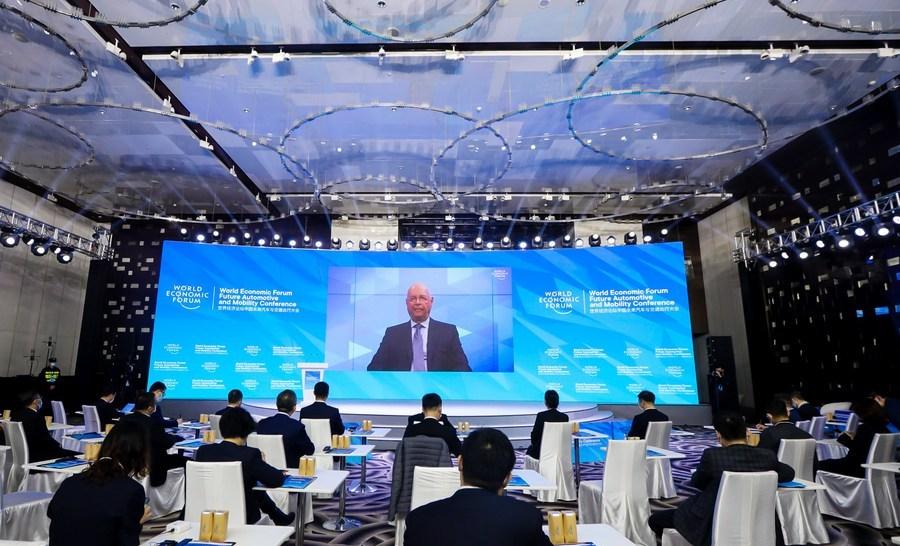
Klaus Schwab, Founder and Executive Chairman of the World Economic Forum, spoke by video at the conference. The World Economic Forum China Future Of Automobile and Mobility Conference was held in Guangzhou on the 21st. Courtesy of the organizer
Guangzhou, 22 Dec (Xinhua) -- The World Economic Forum's China Future Automobile and Transportation Conference was held in Guangzhou on 21 December. In a video speech at the opening ceremony, Klaus Schwab, founder and executive chairman of the World Economic Forum, said that as early as 2010, China's automotive industry began to transform, and China was in a leading position in the global electric vehicle industry under the driving factors of policy guidance, value chain reform and strong incentives.
He believes that the global automotive industry is facing two major challenges of digital transformation and decarbonization, and in order to successfully cope with the challenges, the global automotive industry needs to carry out closer and broader cooperation with all stakeholders and take more and faster actions on a global scale.
With the theme of "Digitalization and Low-carbon Two-Wheel Drive Industry Development", the heads of relevant departments at home and abroad shared the achievements and practices of the transportation and automobile industries in various countries in digitalization and low-carbon.
China is the world's largest automotive market. China's new energy vehicle development leads the world, power battery technology, intelligent network technology continues to make breakthroughs, electric vehicle charging and replacement infrastructure, intelligent roads and other supporting facilities are gradually improving. From January to November this year, the production and sales of new energy vehicles in China reached 3.023 million units and 2.99 million units, respectively, an increase of 1.7 times year-on-year.
Representatives of participating companies believe that the data security of intelligent vehicles is related to privacy and ethics, but the development of the intelligent driving industry is inseparable from data, and it is necessary to make data play a real value and promote the development of technology under the premise of complying with relevant laws and ensuring data security.
Participating experts and enterprise representatives proposed that in the context of achieving carbon neutrality, it is necessary to pay attention to the whole process of automotive product design, manufacturing, sales and scrapping, make full use of existing technologies, and continuously develop new technologies to promote green and low-carbon travel.
At the conference site, GAC Group, Wenyuan Zhixing, and Ruqi Travel signed a contract and announced that they will launch a self-driving taxi business in 2022; Guangzhou Huadu District announced the construction of a terminal logistics autonomous driving unmanned distribution demonstration area to explore unmanned distribution applications in campuses, scenic spots, communities and other scenarios.